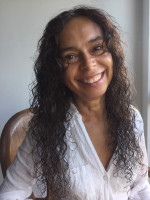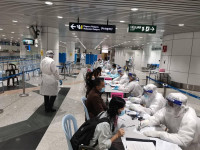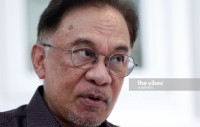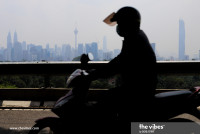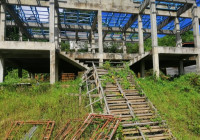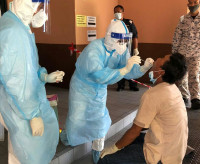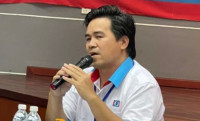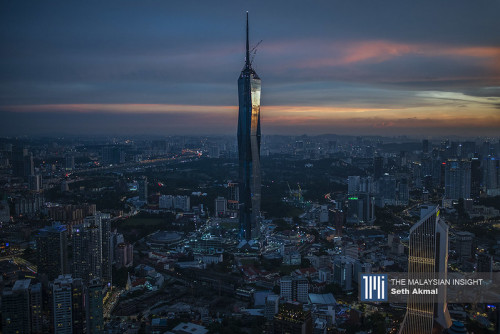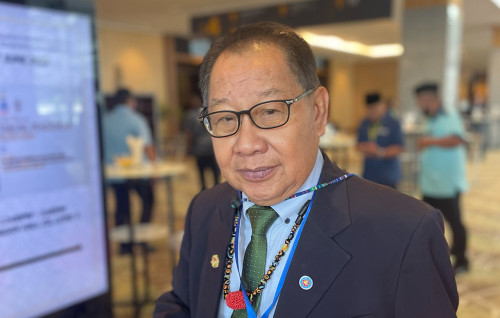AFTER almost a year of the Covid-19 pandemic, SOPs are an increasing part of our daily routine. Yet, are we growing less cautious? Is complacency slipping in, are we beginning to suffer from ‘Covid fatigue’?
‘Covid fatigue’ is a form of emotional exhaustion, and is a natural response to a prolonged stressful situation. The World Health Organisation (WHO) identifies it as “pandemic fatigue”, describing the major effect as “demotivation to follow recommended protective behaviours”.
However, while Covid fatigue causes many to lower their guard against the virus, there is no cease-fire on the pandemic battlefront. Our frontliners are still out there, as they were almost a year ago, putting their lives at risk to hold back the Covid assault.
Most of us are so far away from the battle we could perhaps pretend it doesn’t exist, while they are face-to-face with it every day, their bodies our shields against a rising tide of infection.
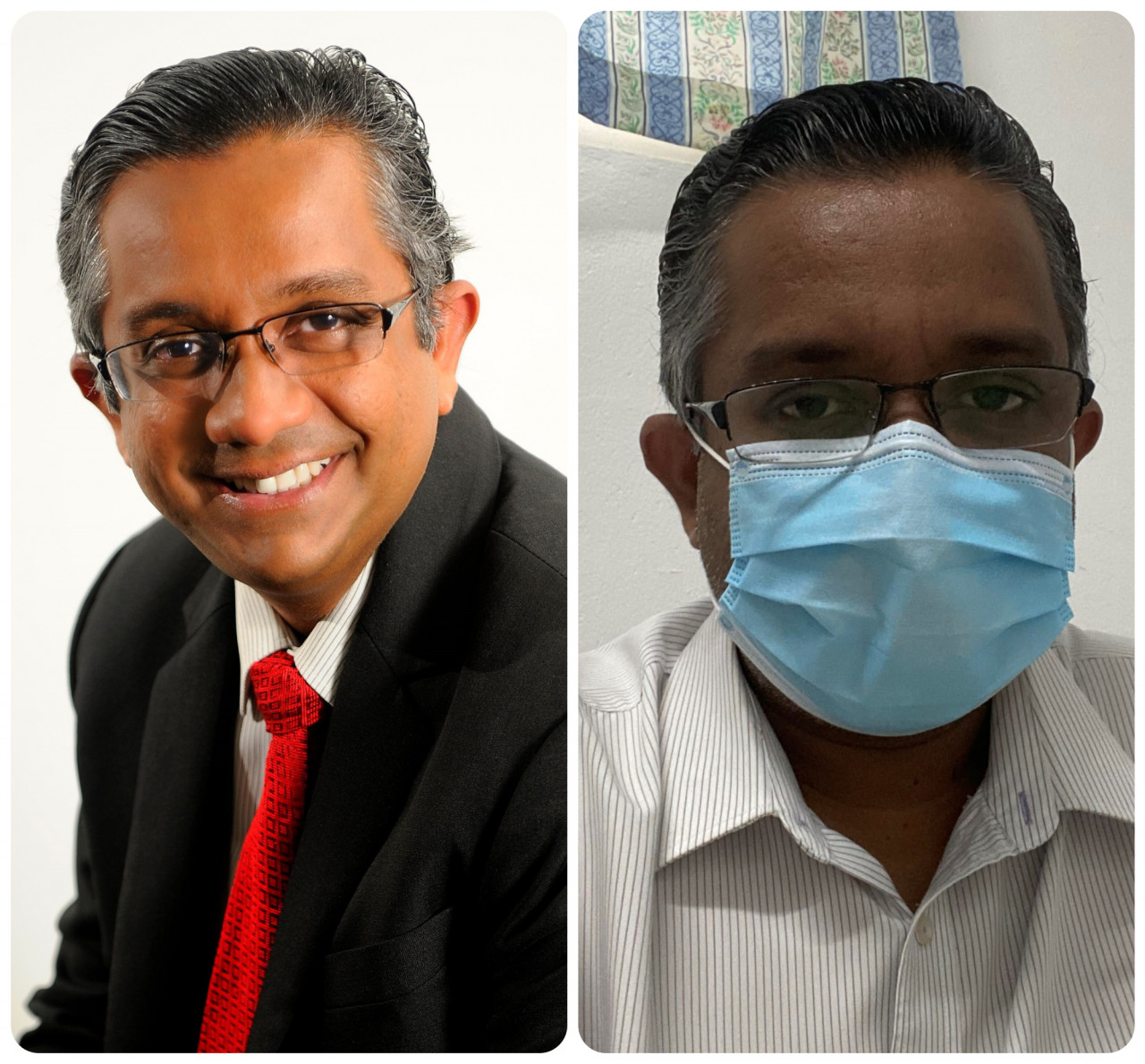
Rajesh Kumar Muniandy, 43, runs a clinic in Queen Elizabeth Hospital, Kota Kinabalu, Sabah.
“We have done a lot to reduce the risk of infection. Most non-urgent consultations have been postponed or are made online. Some other patients are restricted by the travel ban.
“I feel very sorry for those affected, waiting, perhaps in pain, and not knowing when they can see a doctor. Some have to come in, so they are screened.
“The problem arises when a patient is so anxious to see a doctor that they don’t tell the truth. At the surgery, we find they have a temperature. Only then do they admit that someone at home is Covid positive or that they have visited a red zone.
“The risks are very real every day, not just for staff, but for other patients who come in.”
The reality has indeed come home for Dr Rajesh.
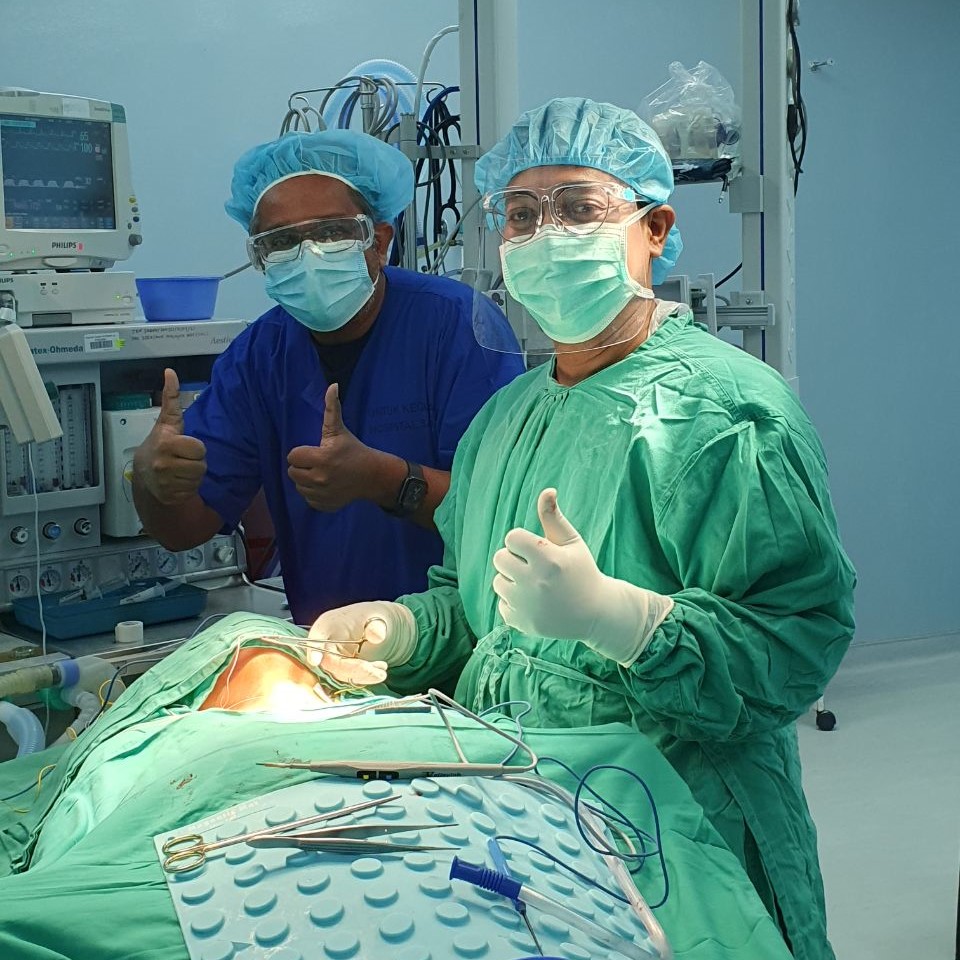
In his role as anaesthesiologist, Dr Rajesh was in the operating theatre, helping to save the life of a patient who had tested negative for Covid. Unfortunately, after the operation, the patient’s third test was positive. Now Dr Rajesh is quarantined.
“I am confined to my room, away from my wife and two children, waiting for my test results. My children are 16 and 13, and my wife also works in the hospital.
“At the beginning of the pandemic, we explained to them that we must risk being infected, as our patients need us. They understand, but they also worry, especially now, and that concerns me.
“Shut away from them here, I feel my anxiety levels have risen. I wonder what will happen if I get sick, whether I could have infected others, whether my family are safe.
“I have never once reconsidered my job. This is my chosen path, and I will take the risks and bear the consequences. But I would ask the public to understand we are human too, and need their cooperation.
“Everyone must take responsibility for their movement and actions, to ensure they don’t endanger others.”
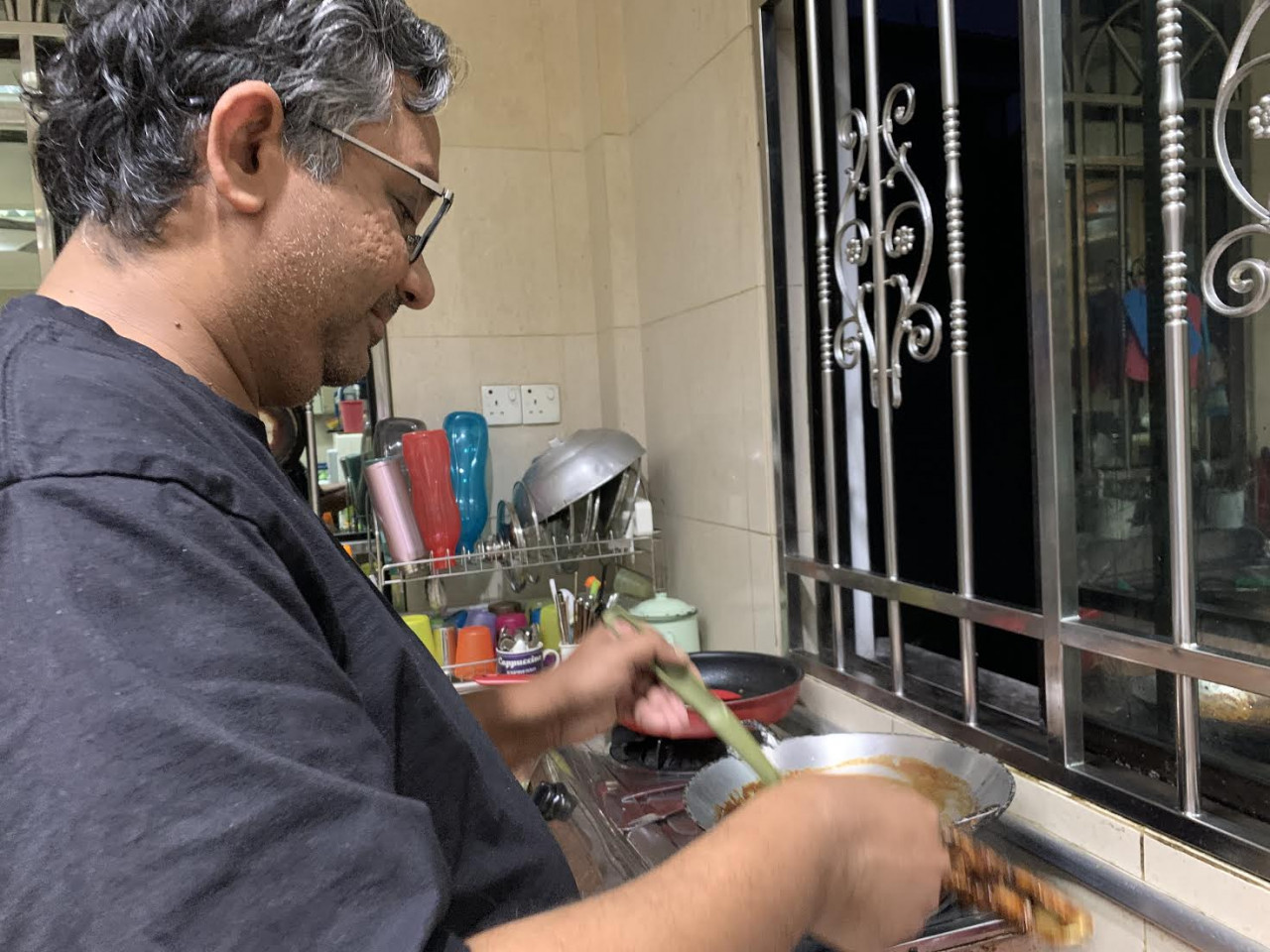
Another frontliner hoping for everyone’s cooperation is Inspector Daniel Kanapathy, 35. The exhaustion was evident on his handsome face as he spoke to me from his office in the CID of the Sentul police headquarters.
“I was tasked to work on roadblocks first, ensuring the public didn’t leave their homes unnecessarily. Most were scared of the virus, but it was a hard culture shock for them to be restricted. Some would try to cheat the roadblocks, but after a while people cooperated.
“In this new wave of MCOs, people are arguing with us and questioning why they can’t go wherever they want. It is mentally exhausting to have to keep telling people to stay at home, follow the SOPs. As frontliners we have seen the bodies taken out, seen how hard the doctors work to save lives.”
_and_his_team_would_have_to_find_them_again_so_that_doctors_could_take_them_to_hospital.jpg)
During last year’s EMCO, Inspector Daniel was assigned to Pasar Borong Selayang. The high number of Covid cases there was mainly due to overcrowding and poor living conditions. Policing the red zone was a grim task that gave many people cause for concern. Inspector Daniel had the insider’s perspective.
“We had to cordon off whole areas that had high numbers of cases. No one was allowed in or out. This is when I saw the real struggle of very poor people, especially refugees.”
Refugees are often caught in the worst areas of a war zone. It was no different in the battle against Covid.
“It was very bad. The living areas above the shop lots were extremely cramped, and impossible for people to socially distance. Many didn’t have enough food or essentials, although the UN had sent in some supplies.
“We police officers were passing some of our food to the children. Later we were able to help NGOs deliver food and basic necessities. 17,000 people lived that way, depressed and stressed. They were pushed to desperation.
“I arrested someone for attempting to steal powdered milk from one of the shop lots. Wearing PPE, I went to his home to check, and found there was a baby there.
“It was heart-breaking that a father had been driven to stealing in order to feed his baby son. I didn’t charge him. Sometimes you need to think from your heart, not from your head.
“It is a challenging dilemma, when you are reacting to a situation that is emotionally charged, but at the same time you need to implement the law to make sure people are safe. That was the hardest part during the EMCO.”
_and_his_colleagues_worked_long_hours_on_the_roadblocks__encouraging_people_to_stay_safely_at_home.jpg)
It was an emotionally challenging period for many of Inspector Daniel’s officers too.
“We had to isolate ourselves from our families and couldn’t spend time with them. My parents worried about whether I would be alive or not by the time it all ended. Some officers had to isolate from their wife and kids. It is so hard for small children to understand why their parents can’t touch and kiss them.”
Now back to investigating crime, Inspector Daniel must simultaneously coordinate the Covid Task Force Team. Tired and over-stretched, he feels despondent.
“When the cases were in the 100s and decreasing, we felt we had been part of making it happen. We were so happy. Now I am disappointed. It’s like all the time and effort we spent last time to ensure people’s safety has been worthless.
“We need everyone’s cooperation to finish all this. We can all contribute to cut the spread. We can do it.”
_-_We_have_to_work_without_thinking_about_our_families._We_want_people_to_stay_home_to_protect_theirs..jpg)
Marcus Yong has a very good understanding of how the Covid-19 virus spreads.
“The extraordinary thing about Covid-19 isn’t the death rate, it’s the infection rate. One person not following the SOPs could easily spread the virus to 50 or 60 people, causing new clusters that go on to infect 10s of 1000s. The burden to frontliners and the Malaysian economy if this goes on will be enormous.”
Marcus, 27, is a medical laboratory technologist, who has worked on the frontline battling viruses for four years.
Stationed in the diagnostic section of the Institute for Medical Research, Marcus used to work from 8am to 5pm, dealing with samples of polio, enterovirus and other SARS viruses.
As the only national public health laboratory at that time, Marcus’s workplace received the first Malaysian samples of the coronavirus. Marcus was one of the team to develop the protocol for PCR detection of Covid, and the SOPs for the public to follow.
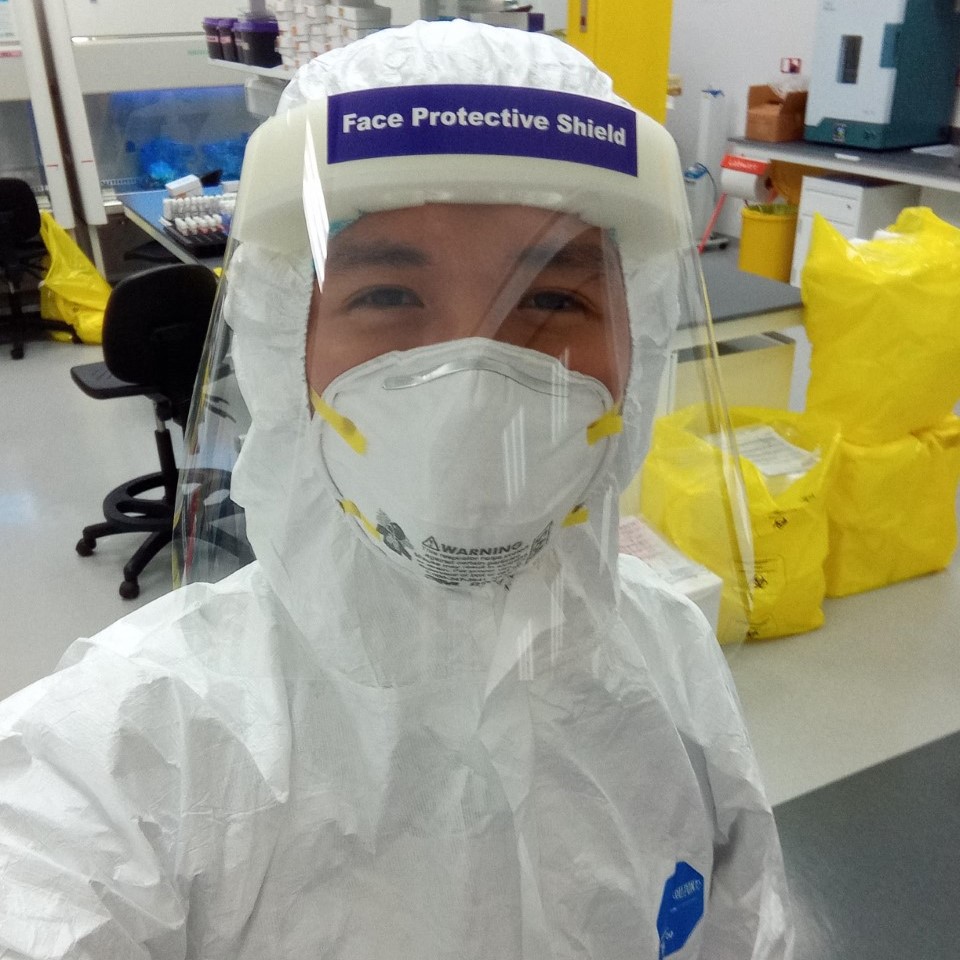
“When the pandemic hit, we had to work 24 hour shifts, from 8am one day to 8am the next. There were so many samples to deal with. We would work in full PPE for 8 hours, discard it and take a small break, then put on a new set for the next 8 hours. We would sometimes take power naps – fall asleep in a corner – as we had to stay alert. You couldn’t afford to mislabel a sample.
“I am young and single, but I felt sorry for my other colleagues. Most of them have children. Many had to send their families away to relatives, as they couldn’t be available to care for them. The team was amazing, though. We kept each other going.”
Marcus really appreciated the public support they received too. People dropped food packages at the hospital for the staff, and sometimes there was far too much.
“My colleagues and I would load the food into a car on our break, and drive down to Chow Kit or Pudu, to hand it out to the homeless. They were suffering, as their usual donors were not allowed in the area. We gave out masks too.”
Marcus was involved in training more that 40 other laboratories around the country to also handle the Covid-19 virus. Once this was established, the pressure eased a bit.
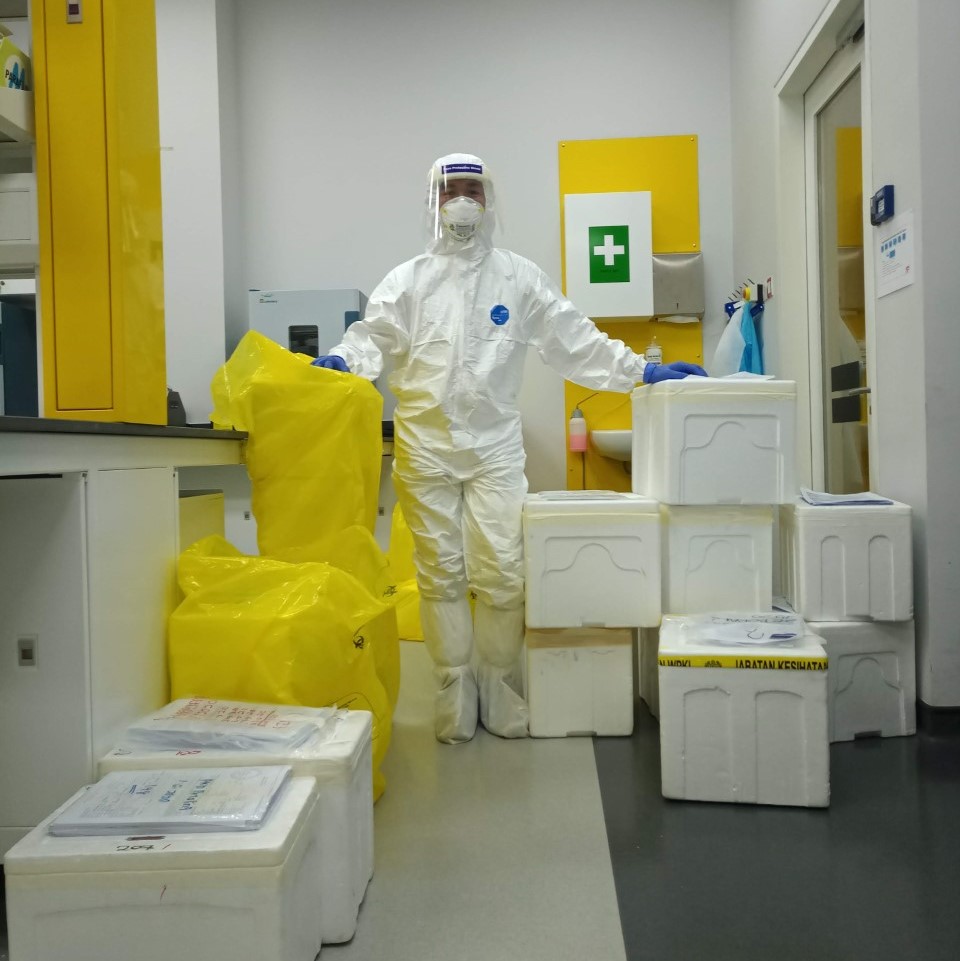
“Now we are working 8am to 10pm. Our routine testing must go on, so I am back in charge of polio surveillance. We have a rota – every fourth day, it is my group’s turn to switch to Covid-19 sampling. There is still a lot to do. The work could spiral again if we don’t break the chain of infection.
“When I go to the shops and see people without masks, I am dumbfounded! Aren’t they afraid? I haven’t been able to see my family, back in Labuan, since December 2019. I have a one-year-old niece that I haven’t met yet.
“If we are going to get back to a normal life, everyone needs to make a conscious effort. But people aren’t listening to frontliners. We are not asking anyone to make the sacrifices we have made, or to work the same hours as us. Just don’t go out.”
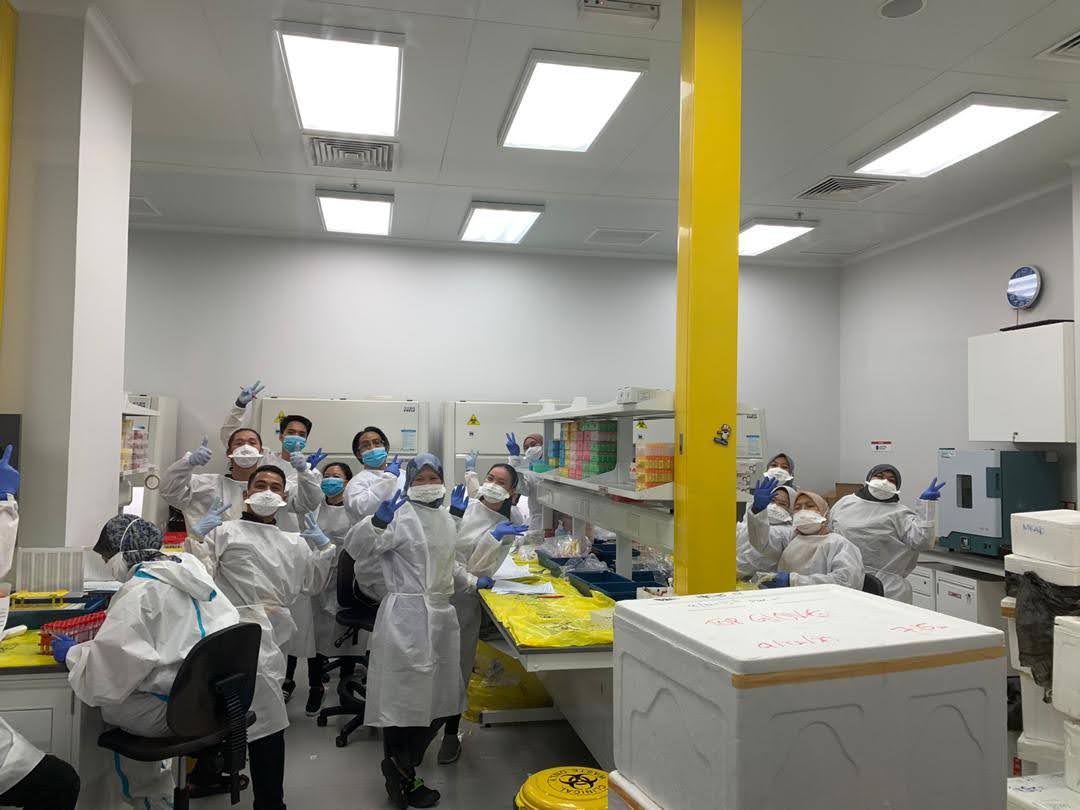
Maybe we have become so familiar with the term ‘frontliners’ that we have forgotten what it entails. This is a war being fought, and these are our soldiers, directly in line of the machine gun fire, pushing back to save us all.
So maybe as they charge forward, impacting wave after wave, we must battle too, against the very real and insidious threat of Covid fatigue. We can win this war, but we each have a part in the fight. – The Vibes, February 20, 2021
For encouragement on how to counteract Covid fatigue, check out relevant websites such as:
https://www.amitahealth.org/blog-articles/behavioral-health/covid-fatigue-and-how-to-fight-it



_and_his_men_were_tasked_with_identifying_each_of_the_17_000_people_in_the_red_zone__so_that_doctors_could_swab_test_them.jpg)
